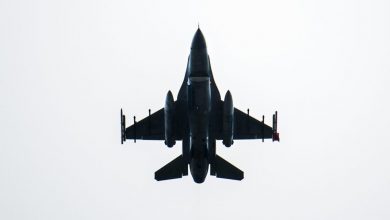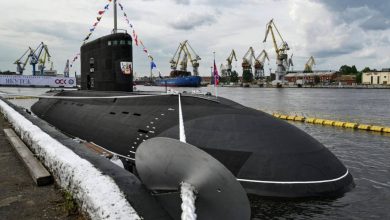Analysis: Can any country survive without nukes?

Putting aside philosophical debates, the idea of a ‘new world order’ suggests that organizations like the SCO and BRICS are aiming to establish new orders due to perceived flaws in the old one
Farhad Ibragimov, a lecturer at the Faculty of Economics of RUDN (Peoples’ Friendship University of Russia) and a visiting lecturer at the Institute of Social Sciences of the Russian Presidential Academy of National Economy and Public Administration, asks if Iran could survive without nuclear weapons. The short answer Professor Ibragimov gives is “Yes.” His long answer, in brief: “It should in order to avoid unleashing a large-scale conflict, which may lead to the most unpredictable consequences.” For a 2,000-word answer, Professor Ibragimov has for what he calls a “complex and multi-layered question” you may consult here.
Professor Ibragimov thinks Iran has joined the Shanghai Cooperation Organization (SCO) and BRICS, which are regional organizations closely tied to the establishment of “a new world order” to provide itself a protective umbrella. Why? Why does any country need an international organization that provides a protective umbrella in “a new world order”?
What is this “new world order” anyway? The serious epistemological deliberations and deep thought about the new and the old (New things in new ways, or same old things in old ways?) aside, we human beings know everything by its opposite, perhaps because of our brain’s binary nature; so if the SCO, BRICS and other organizations trying to create their own new orders, there must be an old order and also there must be something wrong with it.
Türkiye’s interest in BRICS welcomed by Kremlin
Türkiye has been expressing its willingness to join those organizations, especially BRICS, a bloc of emerging economies including Brazil, Russia, India, China and South Africa, and recently admitted Saudi Arabia, Argentina, Ethiopia, Iran and the United Arab Emirates (UAE) as full members. During his official visit to China last week, Turkish Foreign Minister Hakan Fidan said he will attend the bloc’s foreign ministers meeting in the Russian city of Nizhny Novgorod on June 10-11. The Kremlin immediately said it welcomed Türkiye’s interest in the BRICS economic bloc. “We all welcome the increased interest in BRICS on the part of our neighbors, including such important partners as Türkiye,” Kremlin spokesperson Dmitry Peskov told reporters in a press briefing in Moscow.
So, may we assume that Türkiye’s wish, in Fidan’s words, “to pursue new opportunities for cooperation with different partners in platforms like BRICS” originates from the need of a “new” order or does it occur through its experience in the “old” order. There are other explanations about the “old order” like, it is ending (finally!) and in the forthcoming “disorder” era, every man for himself, you need your own nukes to protect your land, your resources, your logistics routes and your transportation (as well as your vessels) on them.
End of an era
Here, “the order” is the era that all the victors of World War II recently celebrated its beginning on the shores of Normandy. The Allied invasion of Nazi-Occupied Europe on June 6, 1944, is the literal end of British hegemony, French sovereignty and German genocidal national instincts, and the beginning of the U.S.-imposed new order. The United States, according to the shared worldview by the American geopolitical analysts, provided a new peaceful era even for the losers of the war, Germany, Italy and Japan, except one of their allies, the Soviet Union. The USSR would be the enemy of the New Order throughout the Cold War years until its collapse in 1991. Again, according to those U.S. geopolitical analysts, the Russian Federation lost Soviet satellite states in Eastern Europe to NATO and the European Union but won China and North Korea in these “cold peace” years.
The era of “Pax Americana” provided equal protection not only to U.S. friends and allies, but also its foes to obtain raw materials, oil and gas, and secure transportation over the oceans that enjoyed peace and tranquility up until now.
The idea of “the Old Order” is the brainchild of Strategic Forecasting Inc., Stratfor for short and commonly known as “The Shadow CIA,” a strategic intelligence company. Many alumni of Stratfor are now operating their own strategic intelligence companies and all of them are of the same opinion: The Old Order cannot continue because the environment created by the “Order” is helping those countries who have become adversaries (if not open enemies) of the U.S.
Their analyses become a little murky here. The politically oriented analysts say the U.S. should stop its unintended and consequential protection of China because it’s helping a country that soon will try to disintegrate and dismember. The economically and financially oriented others say the U.S. does not have enough money to invest in NATO, the EU and Japan.
Even CNN thinks that the 80th anniversary of D-Day is the last joint celebration of it, and there will be no more celebration of D-Day on Normandy beach. Moreover, the four countries had separate ceremonies last Tuesday. The New York Times (NYT) columnists warn that perhaps next year this time there will be no NATO, no EU, no nothing, if the Europeans do not “shape up.”
If you keep reading the Stratfor-educated analysts, you will see that in that “Disorder,” every country will depend on its own nuclear capabilities because the U.S. nuclear umbrella will not be available to anyone. The nuclear umbrella is also known as the Mutual Assured Destruction (MAD) doctrine which posits that if you throw an atomic bomb on someone who also has many A-bombs, his second-strike capabilities will result in the complete annihilation of both you and your enemy.
French President Emmanuel Macron, who did not serve in the military himself because he was doing his graduate studies, offers France’s nuclear umbrella to all EU members, East or West, including Ukraine. The Italians call on him “to personally go to Ukraine and put on your helmet and don’t break our balls” there.
Joke and Macron aside, on the one hand, the EU is discussing that they might better have a nuclear umbrella (whomever provides it); on the other hand, Iran’s mullahs consider revoking their first supreme leader Ayatollah Khomeini’s fatwa, formal ruling on Islamic law, that the atomic bomb is “haram,” forbidden by Islam, and Iran should be capable of creating such weapons from the point of view of security. Then should Türkiye, as one of the countries that has been under the protection of the “Order” not be thinking what would happen to it security-wise under the “Disorder”? Could it be the question of whether any country could survive without its own nuclear weapons? Could it be the answers to these questions leading Türkiye to express interest in the blocs like BRICS (Brazil, Russia, India, China and South Africa)?
Kremlin spokesperson Peskov said Türkiye’s “interest” will be on the agenda of the BRICS summit to be chaired by Russia today at Nizhny Novgorod.
It better be.
Source: DailySabah / Hakkı Öcal





